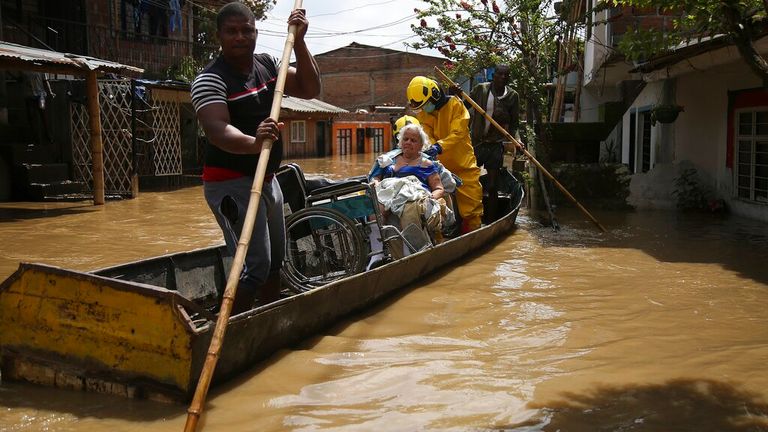Battle lines have been drawn between the almost 200 countries meeting in Azerbaijan as they seek to agree a new pot of money to help developing countries cope with climate change.
Over the last two days, leaders have swanned to the capital Baku for the COP29 climate summit to give glitzy speeches on how much they are doing and how everyone else needs to do more.
Meanwhile, their negotiators dug in for a battle over the new fund of so-called “climate finance”.
This is cash that rich, polluting countries pay to developing nations to help them both ditch fossil fuels – the main cause of climate change – and cope with the impacts of burning them such as heavier rains, deeper drought and harsher heat.
Developed countries including those in the EU and US are leading a push to get more countries to pay into the fund including China, Qatar and South Korea, which were once classed as developing, but whose wealth and emissions have now grown.
But that is not going down well with the likes of China, which already provides this money in other forms, and where emissions and wealth per person remain much lower.
And some poor nations fear the plan to add more donors is a ploy to dilute responsibility, and won’t amount to more money in the piggy bank.
How big that piggy bank should be is shaping up to be one of the hardest things to agree on.
Most accept the amount of money developing countries need to pay for their solar and wind farms, flood defences and hardy crops is about $1trn a year.
But back in Europe, the US and Australia, governments are dealing with tight public finances, shrinking aid budgets and some backlash to climate action.
That makes it hard to see how they can cobble together $1trn – at the moment it’s about $125bn.
Former Maldives president Mohamed Nasheed said $1trn is “a big number”, but added they are “not suggesting that it should just come from European taxpayers”.
There are many “means and ways of raising these funds” including from the private sector and international banks,” he added.
“So it’s I think given the gravity of the matter, this is not a big amount.”
Emmanuel Urey-Yarkpawolo, head of Liberia’s Environmental Protection Agency, said rich countries need to step up because “their development came through the burning of fossil fuels”.
Only about a quarter of Liberians have electricity. To get it, he asked “do we go to coal? Do we go to fossil fuels? Do we go to renewable energy? The answer is clearly yes, let’s move to renewable energy.”
But it will cost about $1bn, he said, as clean power often costs more upfront than fossil fuel power projects. “So public money to help Liberia adapt, to move quickly to renewable energy like that, it becomes very important.”
Liberia is part of a group of 45 “least developed” countries that negotiate together. They say the new fund should set aside $220bn for them, while small island developing countries argue for their own dedicated pot of $39bn.
The money comes from lots of different sources, including countries’ overseas aid budgets, and money that development banks can drum up.
The discussions, which still have two weeks to go, got a boost yesterday when a group of lenders, including the World Bank, said they thought they could get $120bn flowing by 2030, a roughly 60% increase on the amount in 2023.
Patrick Verkooijen, CEO of the Global Center on Adaptation, welcomed the announcement as “a shot in the arm for the climate finance discussion”.
“But there is so much more work ahead,” he added.
A fairly new part of the debate is whether more public money can be generated by taxing polluting industries such as fossil fuel production, flying and shipping.



























